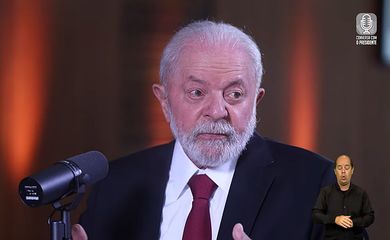Brazil asks court to declare Israel's occupation of Palestine illegal

Brazil has requested that the International Court of Justice (ICJ) in The Hague, Netherlands, declare Israel's occupation of Palestinian territories illegal. The occupation, ongoing since 1967, is viewed by Brazil as a violation of international law and the Palestinian people's right to self-determination.

"Brazil expects the court to confirm that the Israeli occupation of Palestinian territories is illegal and contravenes international obligations due to a range of actions and omissions by Israel," stated Brazil's representative in The Hague, Maria Clara de Paula Tusco.
The Brazilian diplomat further emphasized that Israel's ongoing practices in the occupied Palestinian lands "constitute annexation" and urged the Court to analyze Israel's actions, including the confiscation of Palestinian lands, demolition of Palestinian homes, establishment of Israeli settlements, and the West Bank barrier, as well as measures altering the demographic makeup of the occupied territories.
On Tuesday (Feb. 20), the Brazilian government addressed a public hearing at the International Court of Justice (ICJ), the principal judicial organ of the United Nations (UN). The Court is conducting public hearings until next Monday (26) to receive input from 52 countries regarding the UN General Assembly's consultation with the international court's judges.
In a resolution adopted in December 2022, the UN General Assembly requested the ICJ's opinion on the "Legal Consequences Arising from Israel's Policies and Practices in the Occupied Palestinian Territory." The inquiry aims to clarify, among other issues, potential consequences for Israel regarding its alleged violation of the Palestinian people's right to self-determination.
Brazil's representative at the UN stated that the country's decision to participate in this consultation reflects its "historic commitment to respecting international law, fostering multilateralism, and promoting the peaceful resolution of disputes."
Brazil asserts that the violation of the Palestinians' right to self-determination "cannot be accepted, let alone normalized by the international community." Tusco also highlighted that UN Security Council Resolution 242 of 1967 emphasized the prohibition of the acquisition of territory by force and instructed Israel to withdraw its troops from the recently occupied lands.
"Nevertheless, the occupation persists to this day and has been aggravated by the construction of the separation wall within Palestinian territory, the establishment of illegal settlements in the West Bank, and the annexation of East Jerusalem," she added.
Discrimination
The Brazilian government also pointed out that the establishment of two separate legal systems, one for Israeli settlers and another for Palestinians in the occupied West Bank, represents discrimination against the Palestinian people.
"This differential treatment is evident and well documented and should also be addressed by the court," added the Brazilian representative.
The political-legal regime in the occupied West Bank has been denounced as an apartheid regime by international human rights organizations, such as Amnesty International and Human Rights Watch, as well as by independent UN rapporteurs. Israeli authorities, however, reject this assessment.
Measures
At the conclusion of the presentation of the arguments, Brazil outlined the measures it hopes will be implemented to end the occupation. These include the cessation of Israel's occupation and reparations to the Palestinian people for the violations committed. Furthermore, Brazil calls for non-recognition of the occupation by any state and urges against actions or measures that would support the occupation of these territories.
Finally, diplomat Maria Clara de Paula Tusco emphasized that Brazil advocates for a two-state solution to end the conflict: "For the establishment of an independent, sovereign, and economically viable Palestinian state, coexisting in peace and security alongside Israel within mutually agreed-upon and internationally recognized borders, encompassing the Gaza Strip, the West Bank, and East Jerusalem as its capital."
Israel
The Israeli government has opted not to participate in the public hearings regarding the occupation of Palestinian territories. In a five-page document sent to the ICJ, Israel denounced the resolution that prompted the case examination, stating that “it distorts the history and current reality of the Israeli-Palestinian conflict, thereby undermining peace-building efforts.”
The document argues, "By pointing the finger to one side only, these issues overlook the thousands of dead and wounded Israelis who have fallen victim to the murderous acts of Palestinian hatred and terrorism, which persistently threaten the lives of Israel's civilians and its national security."





